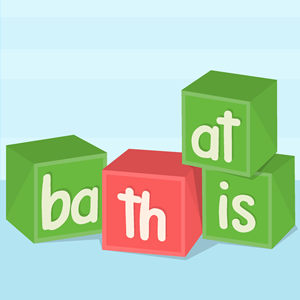The Benefits of Phonics

The Benefits of Phonics
As a parent, you want your child to do well in school and in life, and you know that being a good reader is a crucial part of this success. But you may or may not know that the Department for Education recognises phonics as a key element in helping children to become successful readers.
Why is Reading Important?
The Department for Education National Curriculum for England states that reading helps pupils to develop culturally, emotionally, intellectually, and socially.
An important goal of the curriculum is therefore to enable young learners to become fluent readers and the Department of Education regards this as the best way to develop pupils' comprehension skills and love of reading, and to prepare them for success in secondary school.
As their reading skills develop, pupils gain the ability to read a wide variety of material, including stories, poems and non-fiction. This extensive reading broadens their vocabulary, develops their general knowledge, and allows them to acquire self-knowledge. It is also believed that when children share in the lives of others, they see the world through new eyes and develop a greater capacity for empathy. In addition, reading supports cognitive development by strengthening neural pathways in the brain.
The National English Curriculum states, enthusiastically and almost poetically, that:
"Reading … feeds pupils’ imagination and opens up a treasure-house of wonder and joy for curious young minds."
How Can Phonics Help?
Phonics is an important tool to develop reading fluency.
Phonics teaches pupils that letters they see written on a page are part of a code which represents the sounds of spoken language, and provides them with the tools to understand that code. With these skills they develop into fluent readers who are able to quickly recognise familiar words and to easily sound out new words they encounter.
Phonics allows young readers to develop their reading comprehension. With **practice**, pupils' decoding skills become so automatic that they are able to concentrate on and easily understand the overall meaning of what they are reading.
Phonics also raises children's phonemic awareness. This is the ability to understand how words are formed, and to break them down into individual sounds. For example, if a teacher asks "what are the sounds in the word ball" pupils will answer "b" "aw" and "l". This helps them not only with reading but also with spelling and writing.
A study conducted by educational psychologist Marlynne Grant from 2011 to 2013 followed the progress of a group of children from reception to Year Two. The study found that pupils in classes who began a phonics programme in Reception and received small group teaching if they fell behind were well ahead of the level expected for their age. They were ahead by an average of 28 months for reading and 21 months for spelling. By the end of the study, the most successful child, a seven-year-old boy, attained reading and spelling levels equivalent to 13 years and 9 months, and 14 years and 9 months respectively.
An earlier and much larger study that Grant conducted from 1997 to 2004 followed students from reception to Year Six. This study also found positive results for a phonics-based approach. In addition, it found that children who were below average at the beginning of the study had caught up with their classmates by the end of Reception.
In the introduction to her research report, Grant expresses serious concern about the literacy skills of children in the U.K, where one in six children are still struggling to read when they enter secondary school. The Department for Education is also concerned, and sees phonics as a means to reduce the need for special education, as a key tool to eradicate illiteracy, and as the best method to properly equip children for their secondary school studies.
Phonics has additional benefits that go beyond reading and writing
It is also believed that phonics has additional benefits that go beyond reading and writing. It may also help to develop general thinking skills. In the 1970s, the United States Department of Education conducted a huge educational experiment known as 'Project Follow Through'. The study found that students in phonics-based programmes demonstrated stronger academic skills, including logical reasoning. Also, Linguist Barbara Birch suggests that phonics training may enhance reasoning skills, such as probabilistic reasoning and analogy, as readers navigate the complexities of English spelling.
While children learn at their own pace, phonics works best as part of a balanced approach, combining decoding skills with strategies like recognising whole words by sight.
As a parent you can help your child to develop a love of reading. If you are a reader yourself, and have plenty of books at home, you set an excellent example. You can also introduce your child to picture books before they start school, and help them to enjoy stories by regularly reading aloud to them.
Continue reading: Phonics Phases

